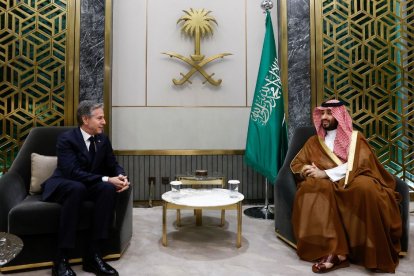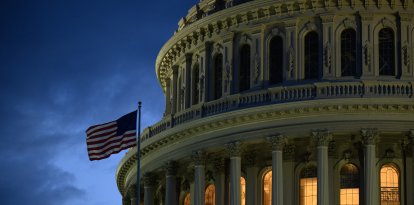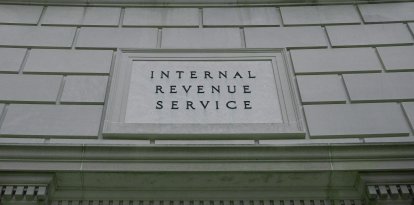A report reveals that Biden is 'close' to a deal with Saudi Arabia amid efforts to foster ties with Israel
The historic treaty is mainly based on a security pact between the United States and Riyadh. However, it also demands significant concessions from Jerusalem.

El Príncipe Heredero de Arabia Saudita, Mohammed bin Salman (R)
The Biden administration is close to reaching a historic agreement with Saudi Arabia that would not only strengthen bilateral trade and defense but also boost long-term diplomatic relations between Riyadh and Israel, The Wall Street Journal reports.
The treaty is based on a security pact in which the United States agrees to help defend Saudi Arabia if attacked. In exchange, the United States would obtain permission to access Saudi territory and airspace to protect its own interests and its allies in the region.
This proposal also seeks to offer Israeli leaders the opportunity to establish normal relations with Saudi Arabia, which could increase their acceptance in the Arab and Muslim world. However, the success of this diplomatic effort depends on Israel's commitment to a two-state solution with the Palestinians, an approach that the current Israeli government and much of the Jewish state's public opinion reject.
A defense alliance with Saudi Arabia would consolidate the United States' role in the Middle East and hinder China's efforts to influence the region and find new allies, former senior U.S. intelligence official Jonathan Panikoff explained to The Wall Street Journal.
However, for this agreement to be finalized, both Israel and Saudi Arabia must make important concessions, and a two-thirds majority in the U.S. Senate must also approve the agreement.
Change in Biden policy
President Joe Biden, who campaigned on a pledge to treat Saudi Arabia as a pariah over the murder of journalist Jamal Khashoggi, is now in a position to formalize a commitment to protect the kingdom. This move represents a notable change in its foreign policy, seeking to strengthen ties with a monarchy that, although it is promoting ambitious economic and social development, continues to repress dissent.
"It would be the first time the U.S. concluded a mutual defense pact that would carry the force of law since the 1960 revision of the U.S.-Japan treaty, and the first time it concluded such an agreement with an authoritarian country," said Aaron David Miller, former American peace negotiator.
The deal was almost ready last month
A conceptual agreement on most provisions was reached last month after a meeting between U.S. officials and Saudi Crown Prince Mohammed bin Salman. However, U.S. national security adviser Jake Sullivan stressed that the normalization of relations between Saudi Arabia and Israel was a requirement for signing the agreement, which at the time appeared to remain an issue.
“The integrated vision is a bilateral understanding between the U.S. and Saudi Arabia combined with normalization between Israel and Saudi Arabia, combined with meaningful steps on behalf of the Palestinian people (...) All of that has to come together. You can’t disentangle one piece from the others,” Sullivan said, noting that the decision would also largely depend on Israeli leaders.
RECOMMENDATION





















